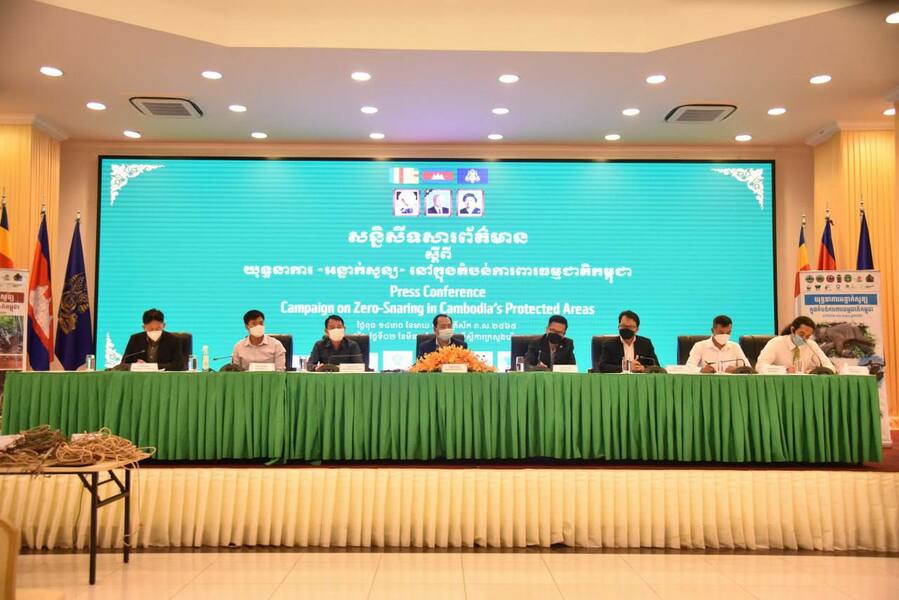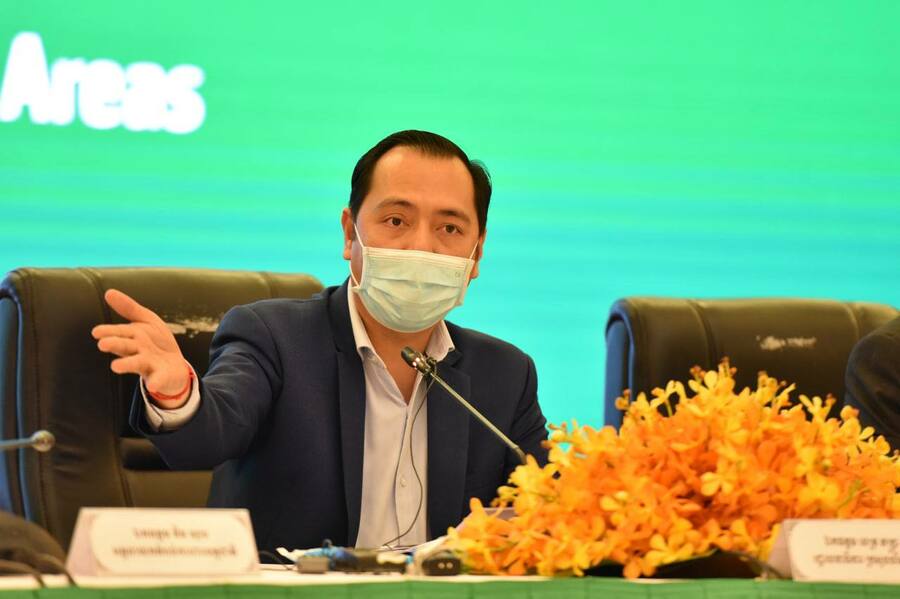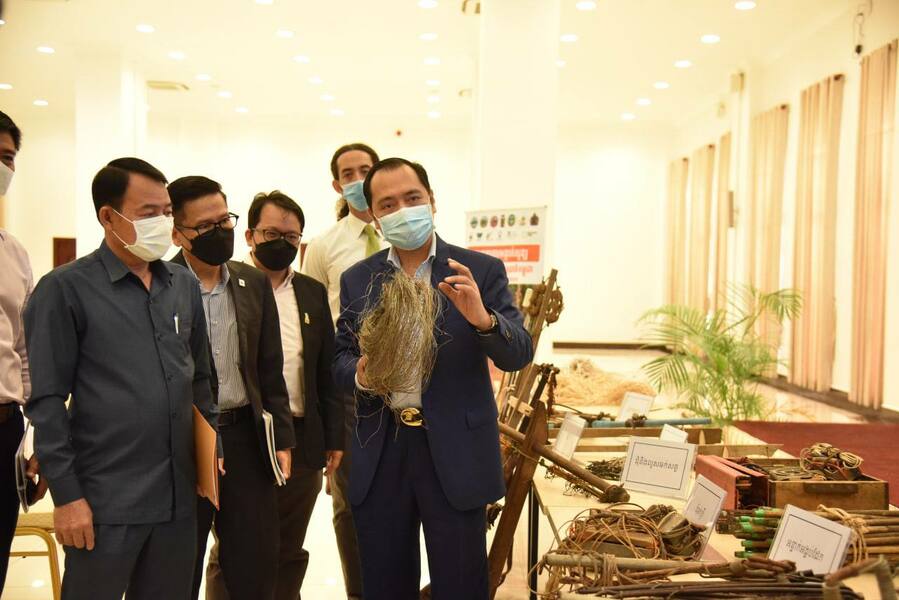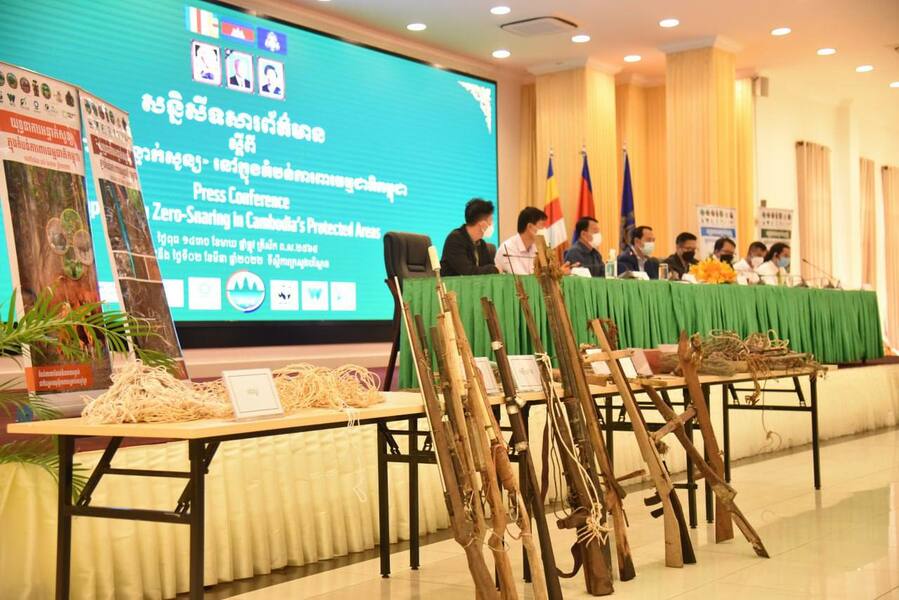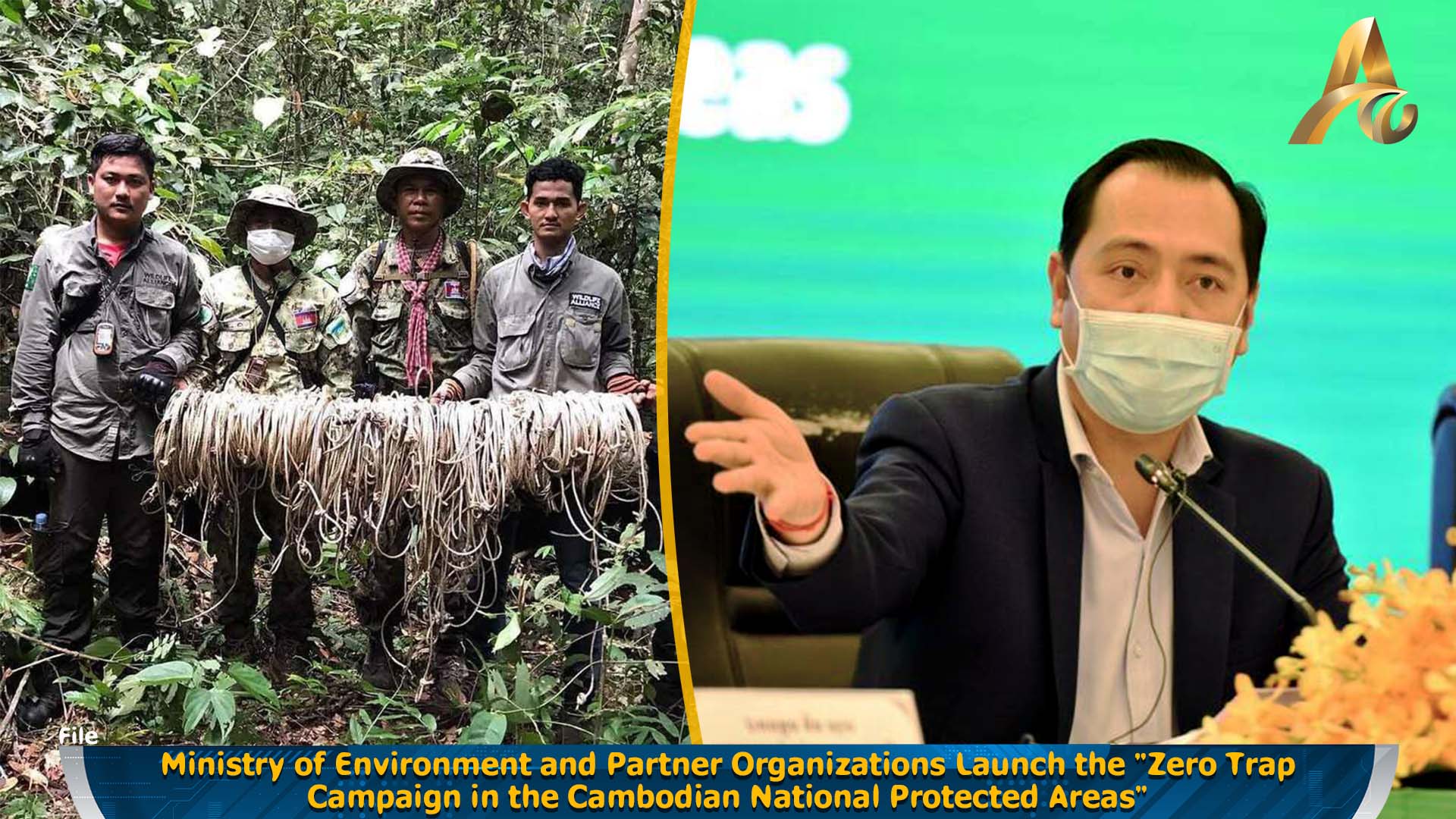
Ministry of Environment and Partner Organizations Launch the "Zero Trap Campaign in the Cambodian National Protected Areas"
PHNOM PENH: Part of the the Ministry of Environment’s "Zero Trap Campaign in the Cambodian National Protected Areas", initiated with the participation of international organizations, The National Partnership for Natural Resource Conservation will officially start on Wednesday, 3 March, and run for six months in provinces east of the Mekong River (Kratie, Stung Treng, Ratanakkiri and MondulKiri, Preah Vihear and Kampong Thom).
This announcement was made by the Secretary of State of the Ministry of Environment, Net Pheaktra, in a press conference Tuesday afternoon at the Ministry of Environment, with representatives from partner organizations present, including the World Wildlife Fund (WWF), the Cambodian Wildlife Conservation Society (WCS), Birdlife International (BI), the United States Agency for International Development (USAID Green Prey Lang) and FFI.
The Secretary of State announced that the launch of the Zero Trap Campaign on Wednesday, 3 March, coincides with the celebration of World Wildlife Day and its main purpose is to educate people about the effects of traps on animal and human life, strengthen law enforcement, change citizens' attitudes to increase environmental friendliness, love wildlife, biodiversity, eliminate illegal poaching traps and eradicate the wildlife trade, as well as increase the safety of all kinds of wildlife. Secretary of State Neth Pheaktra stated that the situation of protection and conservation of natural resources, the habitat of wildlife in Cambodia, is good, and provides a sanctuary for wildlife and also acts as a source of water and food. He added however that what needs to be further considered is making the protected areas safer for wildlife and other biodiversity, which the Secretary of State said poses a serious threat to wildlife.
He continued that the total number of traps removed in 2021 was 61,611, which was an increase of more than 20% compared to the number of traps removed in 2020 (43,270 traps). He said that the traps that were removed were hidden killers of wildlife in protected areas of Cambodia, because these types of traps would administer electric shocks and break legs, acting as a major threat to wildlife.
The Secretary of State said the Zero Trap Campaign will help to raise awareness and contribute to reducing the number of traps in protected areas. Speaking at the press conference, the Director General of the General Department of Natural Areas of the Ministry of Environment, Kim Nong, said that this campaign aims to encourage locals who have a habit of trapping wild animals to obey the law, and to also make them understand the value of wildlife and come together to conserve wildlife.
The Director General stated that Cambodia already has a law on disciplinary action for trapping offenses, which is the third natural resource violation law, and includes fines and penalties, including imprisonment from 1 to 5 years and fines from 15 to 150 million riel. He said that during this campaign, all parties involved will work together for six months, and during this time, local authorities and communities will work together to prevent and become educated about the law, penalties, and the value of wildlife.
Meanwhile, the President of WWF, Seng Teak, said that currently only 20% of the traps have been removed in protected areas, and another 80% have not yet been cleared, which the perpetrators have placed in natural resource areas in Cambodia.
According to the WWF President, based on the 2020 report, there are about 12 million traps in Asia, in countries such as India, Malaysia, Vietnam, Laos, Thailand and Cambodia. These countries also have endangered species of tigers, leopards, wild dogs, bears and so on, making the matter of the uncleared traps a major concern.
The President of the organization wants the relevant institutions to enforce the law on the perpetrators of rare wildlife killings, as well as restaurants or areas where wildlife is traded, with the aim to protect Cambodia's wildlife from extinction in the future. A representative from USAID Prey Lang Baitong project, Chhin Sam Ath, said that If we do not have any specific measures on the traps that the perpetrators are placing every day our environment and wildlife will continue to suffer and disappear.
At the same time, enforcing the law and promoting it is also a must for local communities. Bou Reaksak, the President of Birdlife International in Cambodia, said the traps, in addition to killing other wildlife, also kill many birds.
Leremy Parker, a representative from FFI stated that traps are a problem that Cambodia continues to face and the community must be strengthened so that people can patrol and recover in key areas to prevent further killings.
The opening ceremony of the Zero Trap Campaign took place online on Wednesday, 3 March, with the participation of inter-ministerial provincial administrations, partner organizations, and other stakeholders are cooperating with the Ministry of Environment for this campaign.
